Esoteric Christianity, or The Lesser Mysteries - Annie Besant (ebook reader that looks like a book .TXT) 📗
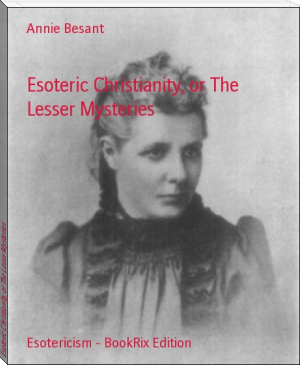
- Author: Annie Besant
Book online «Esoteric Christianity, or The Lesser Mysteries - Annie Besant (ebook reader that looks like a book .TXT) 📗». Author Annie Besant
whose intellect is more evolved than their conscience. Hence arises the necessity of withholding certain teachings from those who, morally, are as yet unfitted to receive them; and this necessity presses on every Teacher who is able to impart such knowledge. He desires to give it to those who will use the powers it confers for the general good, for quickening human evolution; but he equally desires to be no party to giving it to those who would use it for their own aggrandisement at the cost of others.
Nor is this a matter of theory only, according to the Occult Records, which give the details of the events alluded to in Genesis vi. _et seq._ This knowledge was, in those ancient times and on the continent of Atlantis, given without any rigid conditions as to the moral elevation, purity, and unselfishness of the candidates. Those who were intellectually qualified were taught, just as men are taught ordinary science in modern days. The publicity now so imperiously demanded was then given, with the result that men became giants in knowledge but also giants in evil, till the earth groaned under her oppressors and the cry of a trampled humanity rang through the worlds. Then came the destruction of Atlantis, the whelming of that vast continent beneath the waters of the ocean, some particulars of which are given in the Hebrew Scriptures in the story of the Noachian deluge, and in the Hindu Scriptures of the further East in the story of Vaivasvata Manu.
Since that experience of the danger of allowing unpurified hands to grasp the knowledge which is power, the great Teachers have imposed rigid conditions as regards purity, unselfishness, and self-control on all candidates for such instruction. They distinctly refuse to impart knowledge of this kind to any who will not consent to a rigid discipline, intended to eliminate separateness of feeling and interest. They measure the moral strength of the candidate even more than his intellectual development, for the teaching itself will develope the intellect while it puts a strain on the moral nature. Far better that the Great Ones should be assailed by the ignorant for Their supposed selfishness in withholding knowledge, than that They should precipitate the world into another Atlantean catastrophe.
So much of theory we lay down as bearing on the necessity of a hidden side in all religions. When from theory we turn to facts, we naturally ask: Has this hidden side existed in the past, forming a part of the religions of the world? The answer must be an immediate and unhesitating affirmative; every great religion has claimed to possess a hidden teaching, and has declared that it is the repository of theoretical mystic, and further of practical mystic, or occult, knowledge. The mystic explanation of popular teaching was public, and expounded the latter as an allegory, giving to crude and irrational statements and stories a meaning which the intellect could accept. Behind this theoretical mysticism, as it was behind the popular, there existed further the practical mysticism, a hidden spiritual teaching, which was only imparted under definite conditions, conditions known and published, that must be fulfilled by every candidate. S. Clement of Alexandria mentions this division of the Mysteries. After purification, he says, "are the Minor Mysteries, which have some foundation of instruction and of preliminary preparation for what is to come after; and the Great Mysteries, in which nothing remains to be learned of the universe, but only to contemplate and comprehend nature and things."[9]
This position cannot be controverted as regards the ancient religions. The Mysteries of Egypt were the glory of that ancient land, and the noblest sons of Greece, such as Plato, went to Saïs and to Thebes to be initiated by Egyptian Teachers of Wisdom. The Mithraic Mysteries of the Persians, the Orphic and Bacchic Mysteries and the later Eleusinian semi-Mysteries of the Greeks, the Mysteries of Samothrace, Scythia, Chaldea, are familiar in name, at least, as household words. Even in the extremely diluted form of the Eleusinian Mysteries, their value is most highly praised by the most eminent men of Greece, as Pindar, Sophocles, Isocrates, Plutarch, and Plato. Especially were they regarded as useful with regard to _post-mortem_ existence, as the Initiated learned that which ensured his future happiness. Sopater further alleged that Initiation established a kinship of the soul with the divine Nature, and in the exoteric Hymn to Demeter covert references are made to the holy child, Iacchus, and to his death and resurrection, as dealt with in the Mysteries.[10]
From Iamblichus, the great theurgist of the third and fourth centuries A.D., much may be learned as to the object of the Mysteries. Theurgy was magic, "the last part of the sacerdotal science,"[11] and was practised in the Greater Mysteries, to evoke the appearance of superior Beings. The theory on which these Mysteries were based may be very briefly thus stated: There is ONE, prior to all beings, immovable, abiding in the solitude of His own unity. From THAT arises the Supreme God, the Self-begotten, the Good, the Source of all things, the Root, the God of Gods, the First Cause, unfolding Himself into Light.[12] From Him springs the Intelligible World, or ideal universe, the Universal Mind, the _Nous_ and the incorporeal or intelligible Gods belong to this. From this the World-Soul, to which belong the "divine intellectual forms which are present with the visible bodies of the Gods."[13] Then come various hierarchies of superhuman beings, Archangels, Archons (Rulers) or Cosmocratores, Angels, Daimons, &c. Man is a being of a lower order, allied to these in his nature, and is capable of knowing them; this knowledge was achieved in the Mysteries, and it led to union with God.[14] In the Mysteries these doctrines are expounded, "the progression from, and the regression of all things to, the One, and the entire domination of the One,"[15] and, further, these different Beings were evoked, and appeared, sometimes to teach, sometimes, by Their mere presence, to elevate and purify. "The Gods," says Iamblichus, "being benevolent and propitious, impart their light to theurgists in unenvying abundance, calling upwards their souls to themselves, procuring them a union with themselves, and accustoming them, while they are yet in body, to be separated from bodies, and to be led round to their eternal and intelligible principle."[16] For "the soul having a twofold life, one being in conjunction with body, but the other being separate from all body,"[17] it is most necessary to learn to separate it from the body, that thus it may unite itself with the Gods by its intellectual and divine part, and learn the genuine principles of knowledge, and the truths of the intelligible world.[18] "The presence of the Gods, indeed, imparts to us health of body, virtue of soul, purity of intellect, and, in one word, elevates everything in us to its proper nature. It exhibits that which is not body as body to the eyes of the soul, through those of the body."[19] When the Gods appear, the soul receives "a liberation from the passions, a transcendent perfection, and an energy entirely more excellent, and participates of divine love and an immense joy."[20] By this we gain a divine life, and are rendered in reality divine.[21]
The culminating point of the Mysteries was when the Initiate became a God, whether by union with a divine Being outside himself, or by the realisation of the divine Self within him. This was termed ecstasy, and was a state of what the Indian Yogî would term high Samâdhi, the gross body being entranced and the freed soul effecting its own union with the Great One. This "ecstasy is not a faculty properly so called, it is a state of the soul, which transforms it in such a way that it then perceives what was previously hidden from it. The state will not be permanent until our union with God is irrevocable; here, in earth life, ecstasy is but a flash.... Man can cease to become man, and become God; but man cannot be God and man at the same time."[22] Plotinus states that he had reached this state "but three times as yet."
So also Proclus taught that the one salvation of the soul was to return to her intellectual form, and thus escape from the "circle of generation, from abundant wanderings," and reach true Being, "to the uniform and simple energy of the period of sameness, instead of the abundantly wandering motion of the period which is characterised by difference." This is the life sought by those initiated by Orpheus into the Mysteries of Bacchus and Proserpine, and this is the result of the practice of the purificatory, or cathartic, virtues.[23]
These virtues were necessary for the Greater Mysteries, as they concerned the purifying of the subtle body, in which the soul worked when out of the gross body. The political or practical virtues belonged to man's ordinary life, and were required to some extent before he could be a candidate even for such a School as is described below. Then came the cathartic virtues, by which the subtle body, that of the emotions and lower mind, was purified; thirdly the intellectual, belonging to the Augöeides, or the light-form of the intellect; fourthly the contemplative, or paradigmatic, by which union with God was realised. Porphyry writes: "He who energises according to the practical virtues is a worthy man; but he who energises according to the purifying virtues is an angelic man, or is also a good daimon. He who energises according to the intellectual virtues alone is a God; but he who energises according to the paradigmatic virtues is the Father of the Gods."[24]
Much instruction was also given in the Mysteries by the archangelic and other hierarchies, and Pythagoras, the great teacher who was initiated in India, and who gave "the knowledge of things that are" to his pledged disciples, is said to have possessed such a knowledge of music that he could use it for the controlling of men's wildest passions, and the illuminating of their minds. Of this, instances are given by Iamblichus in his _Life of Pythagoras_. It seems probable that the title of Theodidaktos, given to Ammonius Saccas, the master of Plotinus, referred less to the sublimity of his teachings than to this divine instruction received by him in the Mysteries.
Some of the symbols used are explained by Iamblichus,[25] who bids Porphyry remove from his thought the image of the thing symbolised and reach its intellectual meaning. Thus "mire" meant everything that was bodily and material; the "God sitting above the lotus" signified that God transcended both the mire and the intellect, symbolised by the lotus, and was established in Himself, being seated. If "sailing in a ship," His rule over the world was pictured. And so on.[26] On this use of symbols Proclus remarks that "the Orphic method aimed at revealing divine things by means of symbols, a method common to all writers of divine lore."[27]
The Pythagorean School in Magna Græcia was closed at the end of the sixth century B.C., owing to the persecution of the civil power, but other communities existed, keeping up the sacred tradition.[28] Mead states that Plato intellectualised it, in order to protect it from an increasing profanation, and the Eleusinian rites preserved some of its forms, having lost its substance. The Neo-Platonists inherited from Pythagoras and Plato, and their works should be studied by those who would realise something of the grandeur and the beauty preserved for the world in the Mysteries.
The Pythagorean School itself may serve as a type of the discipline enforced. On this Mead gives many interesting details,[29] and remarks: "The authors of antiquity are agreed that this discipline had succeeded in producing the highest examples, not only of the purest chastity and sentiment, but also a simplicity of manners, a delicacy, and a taste for serious
Nor is this a matter of theory only, according to the Occult Records, which give the details of the events alluded to in Genesis vi. _et seq._ This knowledge was, in those ancient times and on the continent of Atlantis, given without any rigid conditions as to the moral elevation, purity, and unselfishness of the candidates. Those who were intellectually qualified were taught, just as men are taught ordinary science in modern days. The publicity now so imperiously demanded was then given, with the result that men became giants in knowledge but also giants in evil, till the earth groaned under her oppressors and the cry of a trampled humanity rang through the worlds. Then came the destruction of Atlantis, the whelming of that vast continent beneath the waters of the ocean, some particulars of which are given in the Hebrew Scriptures in the story of the Noachian deluge, and in the Hindu Scriptures of the further East in the story of Vaivasvata Manu.
Since that experience of the danger of allowing unpurified hands to grasp the knowledge which is power, the great Teachers have imposed rigid conditions as regards purity, unselfishness, and self-control on all candidates for such instruction. They distinctly refuse to impart knowledge of this kind to any who will not consent to a rigid discipline, intended to eliminate separateness of feeling and interest. They measure the moral strength of the candidate even more than his intellectual development, for the teaching itself will develope the intellect while it puts a strain on the moral nature. Far better that the Great Ones should be assailed by the ignorant for Their supposed selfishness in withholding knowledge, than that They should precipitate the world into another Atlantean catastrophe.
So much of theory we lay down as bearing on the necessity of a hidden side in all religions. When from theory we turn to facts, we naturally ask: Has this hidden side existed in the past, forming a part of the religions of the world? The answer must be an immediate and unhesitating affirmative; every great religion has claimed to possess a hidden teaching, and has declared that it is the repository of theoretical mystic, and further of practical mystic, or occult, knowledge. The mystic explanation of popular teaching was public, and expounded the latter as an allegory, giving to crude and irrational statements and stories a meaning which the intellect could accept. Behind this theoretical mysticism, as it was behind the popular, there existed further the practical mysticism, a hidden spiritual teaching, which was only imparted under definite conditions, conditions known and published, that must be fulfilled by every candidate. S. Clement of Alexandria mentions this division of the Mysteries. After purification, he says, "are the Minor Mysteries, which have some foundation of instruction and of preliminary preparation for what is to come after; and the Great Mysteries, in which nothing remains to be learned of the universe, but only to contemplate and comprehend nature and things."[9]
This position cannot be controverted as regards the ancient religions. The Mysteries of Egypt were the glory of that ancient land, and the noblest sons of Greece, such as Plato, went to Saïs and to Thebes to be initiated by Egyptian Teachers of Wisdom. The Mithraic Mysteries of the Persians, the Orphic and Bacchic Mysteries and the later Eleusinian semi-Mysteries of the Greeks, the Mysteries of Samothrace, Scythia, Chaldea, are familiar in name, at least, as household words. Even in the extremely diluted form of the Eleusinian Mysteries, their value is most highly praised by the most eminent men of Greece, as Pindar, Sophocles, Isocrates, Plutarch, and Plato. Especially were they regarded as useful with regard to _post-mortem_ existence, as the Initiated learned that which ensured his future happiness. Sopater further alleged that Initiation established a kinship of the soul with the divine Nature, and in the exoteric Hymn to Demeter covert references are made to the holy child, Iacchus, and to his death and resurrection, as dealt with in the Mysteries.[10]
From Iamblichus, the great theurgist of the third and fourth centuries A.D., much may be learned as to the object of the Mysteries. Theurgy was magic, "the last part of the sacerdotal science,"[11] and was practised in the Greater Mysteries, to evoke the appearance of superior Beings. The theory on which these Mysteries were based may be very briefly thus stated: There is ONE, prior to all beings, immovable, abiding in the solitude of His own unity. From THAT arises the Supreme God, the Self-begotten, the Good, the Source of all things, the Root, the God of Gods, the First Cause, unfolding Himself into Light.[12] From Him springs the Intelligible World, or ideal universe, the Universal Mind, the _Nous_ and the incorporeal or intelligible Gods belong to this. From this the World-Soul, to which belong the "divine intellectual forms which are present with the visible bodies of the Gods."[13] Then come various hierarchies of superhuman beings, Archangels, Archons (Rulers) or Cosmocratores, Angels, Daimons, &c. Man is a being of a lower order, allied to these in his nature, and is capable of knowing them; this knowledge was achieved in the Mysteries, and it led to union with God.[14] In the Mysteries these doctrines are expounded, "the progression from, and the regression of all things to, the One, and the entire domination of the One,"[15] and, further, these different Beings were evoked, and appeared, sometimes to teach, sometimes, by Their mere presence, to elevate and purify. "The Gods," says Iamblichus, "being benevolent and propitious, impart their light to theurgists in unenvying abundance, calling upwards their souls to themselves, procuring them a union with themselves, and accustoming them, while they are yet in body, to be separated from bodies, and to be led round to their eternal and intelligible principle."[16] For "the soul having a twofold life, one being in conjunction with body, but the other being separate from all body,"[17] it is most necessary to learn to separate it from the body, that thus it may unite itself with the Gods by its intellectual and divine part, and learn the genuine principles of knowledge, and the truths of the intelligible world.[18] "The presence of the Gods, indeed, imparts to us health of body, virtue of soul, purity of intellect, and, in one word, elevates everything in us to its proper nature. It exhibits that which is not body as body to the eyes of the soul, through those of the body."[19] When the Gods appear, the soul receives "a liberation from the passions, a transcendent perfection, and an energy entirely more excellent, and participates of divine love and an immense joy."[20] By this we gain a divine life, and are rendered in reality divine.[21]
The culminating point of the Mysteries was when the Initiate became a God, whether by union with a divine Being outside himself, or by the realisation of the divine Self within him. This was termed ecstasy, and was a state of what the Indian Yogî would term high Samâdhi, the gross body being entranced and the freed soul effecting its own union with the Great One. This "ecstasy is not a faculty properly so called, it is a state of the soul, which transforms it in such a way that it then perceives what was previously hidden from it. The state will not be permanent until our union with God is irrevocable; here, in earth life, ecstasy is but a flash.... Man can cease to become man, and become God; but man cannot be God and man at the same time."[22] Plotinus states that he had reached this state "but three times as yet."
So also Proclus taught that the one salvation of the soul was to return to her intellectual form, and thus escape from the "circle of generation, from abundant wanderings," and reach true Being, "to the uniform and simple energy of the period of sameness, instead of the abundantly wandering motion of the period which is characterised by difference." This is the life sought by those initiated by Orpheus into the Mysteries of Bacchus and Proserpine, and this is the result of the practice of the purificatory, or cathartic, virtues.[23]
These virtues were necessary for the Greater Mysteries, as they concerned the purifying of the subtle body, in which the soul worked when out of the gross body. The political or practical virtues belonged to man's ordinary life, and were required to some extent before he could be a candidate even for such a School as is described below. Then came the cathartic virtues, by which the subtle body, that of the emotions and lower mind, was purified; thirdly the intellectual, belonging to the Augöeides, or the light-form of the intellect; fourthly the contemplative, or paradigmatic, by which union with God was realised. Porphyry writes: "He who energises according to the practical virtues is a worthy man; but he who energises according to the purifying virtues is an angelic man, or is also a good daimon. He who energises according to the intellectual virtues alone is a God; but he who energises according to the paradigmatic virtues is the Father of the Gods."[24]
Much instruction was also given in the Mysteries by the archangelic and other hierarchies, and Pythagoras, the great teacher who was initiated in India, and who gave "the knowledge of things that are" to his pledged disciples, is said to have possessed such a knowledge of music that he could use it for the controlling of men's wildest passions, and the illuminating of their minds. Of this, instances are given by Iamblichus in his _Life of Pythagoras_. It seems probable that the title of Theodidaktos, given to Ammonius Saccas, the master of Plotinus, referred less to the sublimity of his teachings than to this divine instruction received by him in the Mysteries.
Some of the symbols used are explained by Iamblichus,[25] who bids Porphyry remove from his thought the image of the thing symbolised and reach its intellectual meaning. Thus "mire" meant everything that was bodily and material; the "God sitting above the lotus" signified that God transcended both the mire and the intellect, symbolised by the lotus, and was established in Himself, being seated. If "sailing in a ship," His rule over the world was pictured. And so on.[26] On this use of symbols Proclus remarks that "the Orphic method aimed at revealing divine things by means of symbols, a method common to all writers of divine lore."[27]
The Pythagorean School in Magna Græcia was closed at the end of the sixth century B.C., owing to the persecution of the civil power, but other communities existed, keeping up the sacred tradition.[28] Mead states that Plato intellectualised it, in order to protect it from an increasing profanation, and the Eleusinian rites preserved some of its forms, having lost its substance. The Neo-Platonists inherited from Pythagoras and Plato, and their works should be studied by those who would realise something of the grandeur and the beauty preserved for the world in the Mysteries.
The Pythagorean School itself may serve as a type of the discipline enforced. On this Mead gives many interesting details,[29] and remarks: "The authors of antiquity are agreed that this discipline had succeeded in producing the highest examples, not only of the purest chastity and sentiment, but also a simplicity of manners, a delicacy, and a taste for serious
Free e-book «Esoteric Christianity, or The Lesser Mysteries - Annie Besant (ebook reader that looks like a book .TXT) 📗» - read online now
Similar e-books:
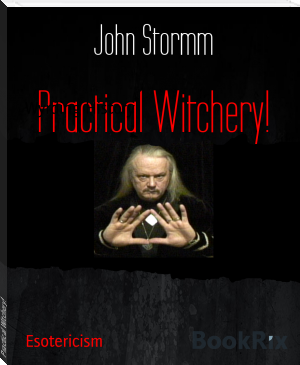

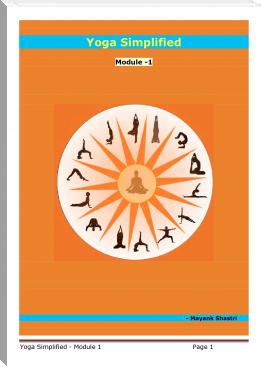
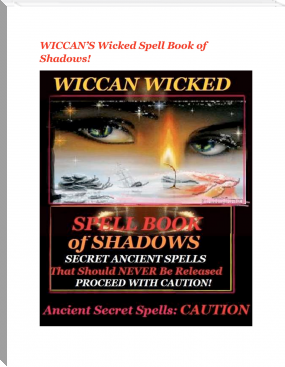
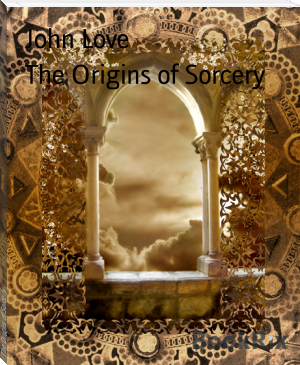
Comments (0)